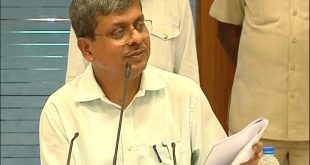Bhubaneswar: The Odisha government has launched Kalinga Siksha Sathi Yojana to provide the educational loan at 1% interest to students for higher studies.
The scheme applies to the students availing education loan from scheduled banks up to 10.00 lakh. The course of study should be in Management, Integrated Law and course of Engineering or Medicine in any educational institution in India.
However, banks are reluctant to give priority to education lending since repayment starts only after completion of studies. They burden applicants with cumbersome paperwork and stipulate stringent repayment terms to discourage them.
The repayment period in Kalinga Siksha Sathi Yojana (KSSY) shall not be more than ten years including the moratorium period if the loan amount is up to Rs 7.50 lakh. Similarly, the repayment period shall not exceed fifteen years including the moratorium period for loans up to 10.00 lakh, said a government notification.
The banks are not showing any interest to provide education loans due to several reasons. The prime reason is that the inability of the vast majority of ill-qualified graduates produced by various colleges and universities to secure well-paying jobs and consequently pay back.
Even as the country’s higher education system has rapidly expanded from 280 universities and 10,800 colleges in 2001 to 719 universities and 35,000 colleges currently, expansion has been at the cost of quality.
Over one million youths have registered their names at different employment exchanges in Odisha and thousands of technical and management students are passing out every year from various institutes. But, there is little scope to get jobs.
A 2014 study conducted by the Federation of Indian Chambers of Commerce and Industry (FICCI) and Ernst & Young, informed that although India produces over 8 million college graduates annually, only a small proportion of them are employable.
The insistence of banks on collateral security is an another roadblock to accessing education credit. Moreover, most nationalized banks don’t accept agricultural land as collateral, because state governments across the country have imposed numerous restrictions on the sale and mortgage of agricultural land.
Now, the nationalized banks are refusing to provide educational loan citing that they have not received any communiqué from the state government. However, a letter uploaded on the website of higher education department shows that all the banks have been informed about the scheme and they have been requested to provide the loan to Odisha students pursuing higher education in the country.
In the game of state government and banks, the future of the students is jeopardized.
 Update Odisha-Latest Odisha News I Breaking News Get latest news on Odisha, Govt. Jobs, OSSC, OPSC, Entertainment, Crime, Sports, and Education
Update Odisha-Latest Odisha News I Breaking News Get latest news on Odisha, Govt. Jobs, OSSC, OPSC, Entertainment, Crime, Sports, and Education



